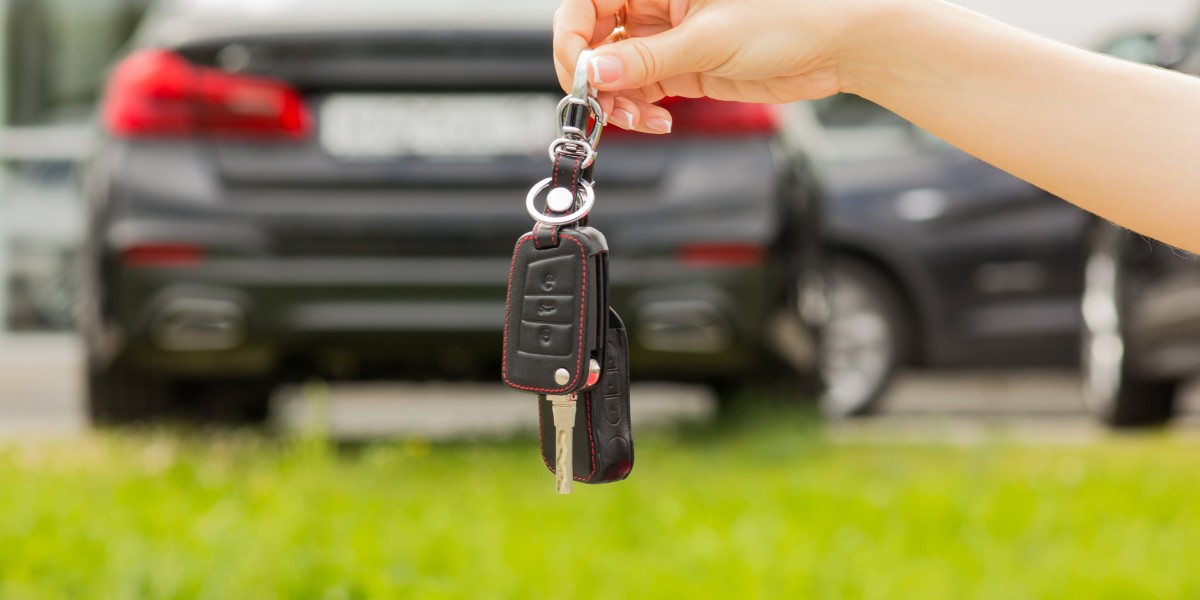Understanding Mobile Key Replacement: An Informative Guide
In today's hectic world, convenience often goes together with innovation. As the dependence on smart devices continues to escalate, so does the requirement for mobile options that can simplify daily jobs. One such development is the mobile key replacement, which permits users to replace lost or harmed keys without the inconvenience of physical key duplication. This post explores the principle of mobile key replacement, its benefits, how it works, and often asked concerns surrounding the topic.
What is Mobile Key Replacement?
Mobile key replacement describes making use of smartphone applications and innovations that allow users to replace physical keys with digital keys kept on their mobile gadgets. This means that individuals can access their cars, homes, and other locking systems utilizing their smartphones instead of traditional metal keys. The technology often utilizes Bluetooth, NFC (Near Field Communication), QR codes, or other wireless communication techniques.

The Key Benefits of Mobile Key Replacement
Convenience: With a mobile key, users no longer require to carry numerous keys. Instead, they can consolidate access to different locks in one gadget.
Security: Digital keys can frequently be set up to include advanced security features, such as file encryption and two-factor authentication.
Alleviate of Management: Replacing a lost key can be as simple as a few taps on the screen, eliminating the lengthy procedure normally associated with key duplication.
Remote Access: Many mobile key systems offer the choice to give temporary access to others, enabling users to offer entry to guests or service personnel without needing to be physically present.
Cost-Effective: Many mobile key apps featured no included costs beyond the initial device purchase, making them an affordable choice in the long run.
How Mobile Key Replacement Works
Mobile key replacement systems generally operate on a mix of software application and hardware. Here's how the process works:
Installation of Smart Locks: Users begin by replacing their standard locks with wise locks efficient in incorporating with mobile innovation. These locks are created to work with Bluetooth, NFC, or Wi-Fi.
Mobile Application: Users download a devoted mobile application that lets them interact with their smart lock. This app might require initial set-up, including linking it to the user's Wi-Fi or Bluetooth.
Key Creation: Once the application is set up, users can develop digital keys within the app. This might consist of permanent, short-lived, or scheduled access for different people.
Gain access to Control: The app communicates with the clever lock, allowing users to from another location unlock or lock doors. Depending upon the wise lock's features, users may also receive notifies and logs relating to gain access to activity.
Replacement of Physical Keys: In cases where a physical key still exists, users can replace it by eliminating the requirement for a metal key completely, fully transitioning to a mobile-based access system.
Popular Mobile Key Replacement Applications
There are various applications and smart locks readily available in the market, making it important to select the best one that satisfies individual or company requirements. Here are some popular alternatives:
| Application/Lock | Features | Compatibility |
|---|---|---|
| August Smart Lock | Remote gain access to, virtual keys, combination with smart home devices | iOS, Android |
| Yale Smart Lock | Voice control, remote management, customizable gain access to | iOS, Android |
| Schlage Encode | Built-in Wi-Fi, keyless entry, guest access rights | iOS, Android |
| Kwikset Halo | Smart keying, remote gain access to, voice combination | iOS, Android |
Costs Associated with Mobile Key Replacement
Transitioning to a mobile key replacement system might require an initial investment in software and hardware. Below is a breakdown of potential costs:
- Smart Locks: Prices can vary from ₤ 100 to ₤ 300, depending upon brand and functions.
- Mobile Application Fees: Some apps may charge for premium features, usually varying from ₤ 5 to ₤ 50 each year.
- Setup Costs: Hiring a locksmith professional for setup can cost between ₤ 50 and ₤ 150.
- Battery Replacement: Smart locks usually need battery replacements every six months to two years.
FAQs about Mobile Key Replacement
1. Are mobile keys protect?Yes, mobile keys can be secure, making use of encryption and two-factor authentication to secure access.
2. What happens if my phone lacks battery?Many mobile key systems include conventional key options or backup approaches, enabling users to access their property even without their mobile phone.
3. Can I give access to others?Absolutely! The majority of mobile key applications permit users to issue short-lived or long-term access to others through their mobile interface.
4. Do I require a particular mobile phone to utilize mobile key replacement?While many wise locks work with both Android and iOS, it is important to inspect individual item requirements.
5. How does mobile key replacement compare to standard keys?Mobile key replacement uses higher benefit, improved security features, and much easier gain access to management than conventional keys.
Mobile key replacement systems represent an exciting convergence of innovation and daily benefit. By understanding how these systems work and the myriad advantages they offer, users can make informed decisions about accepting mobile replacement for their keys. As innovation continues to advance, it is most likely that mobile key fob replacement Car systems will play an integral function in improving security and convenience for users worldwide. Whether for domestic locations, industrial areas, or vehicle access, mobile key replacements provide a modern-day service to an age-old issue, paving the way for a keyless future.








